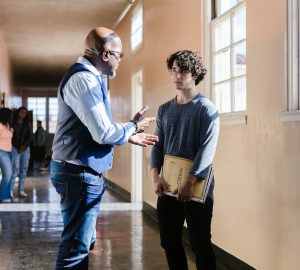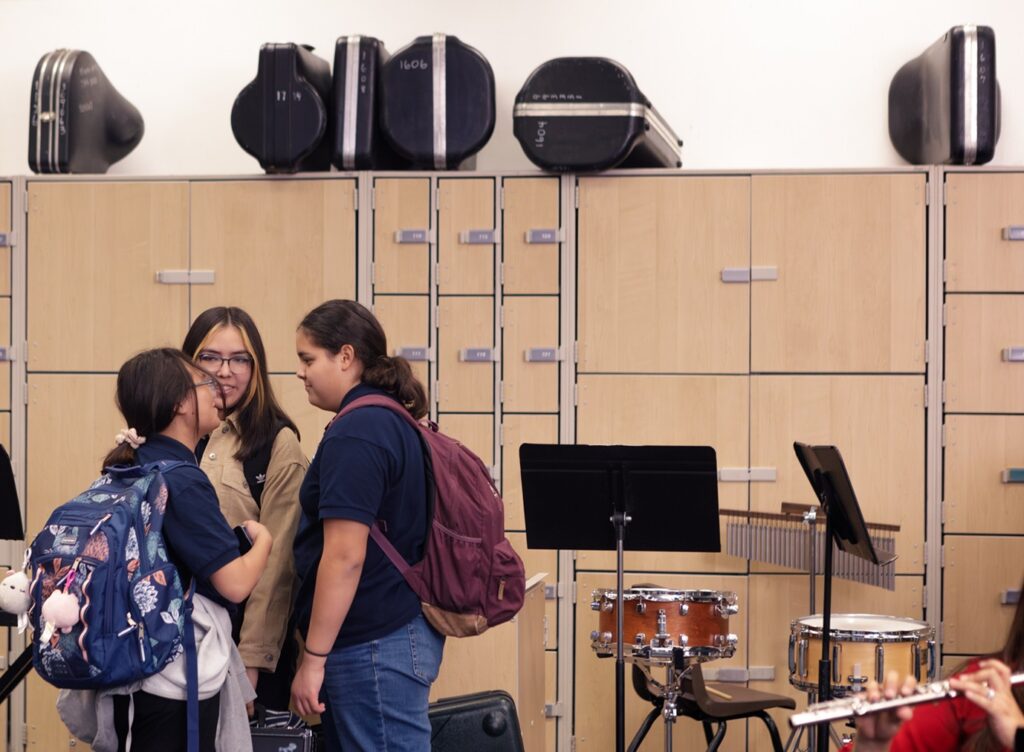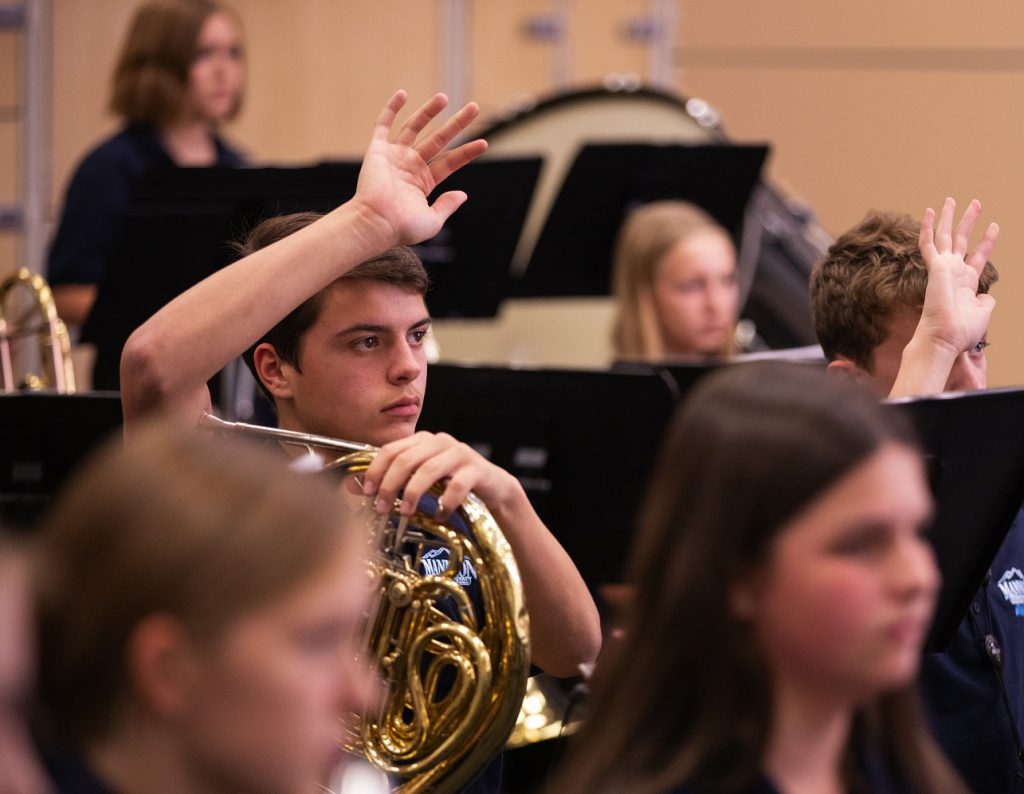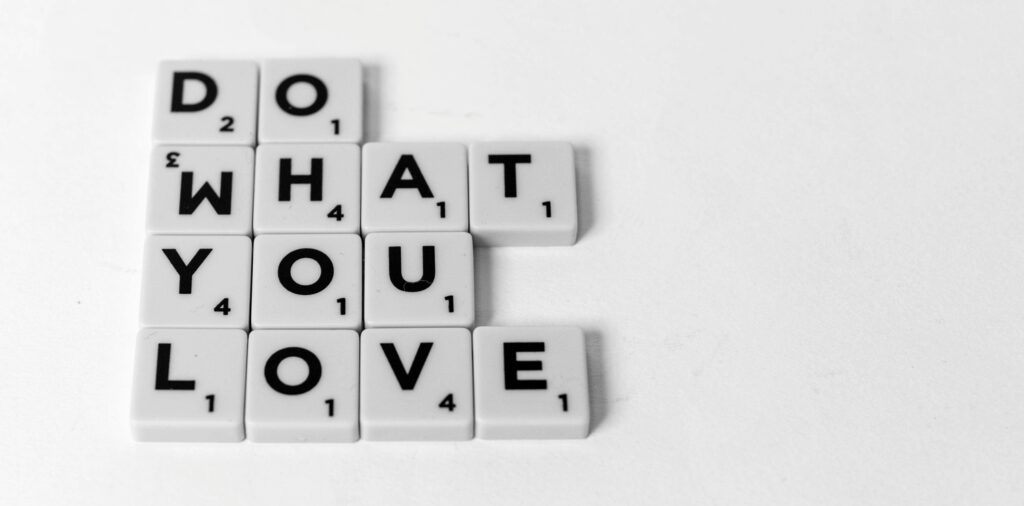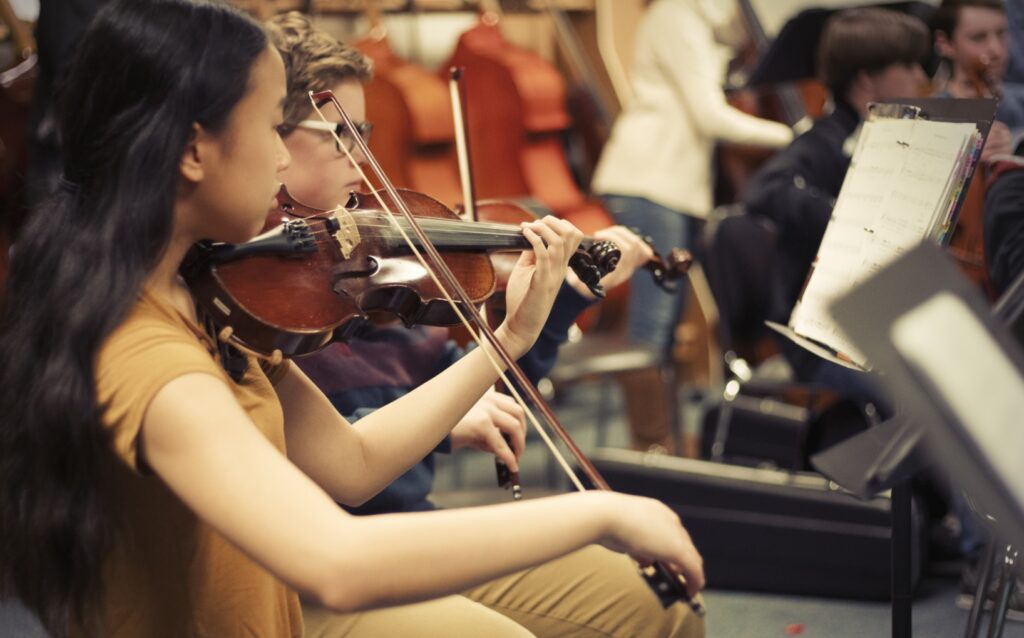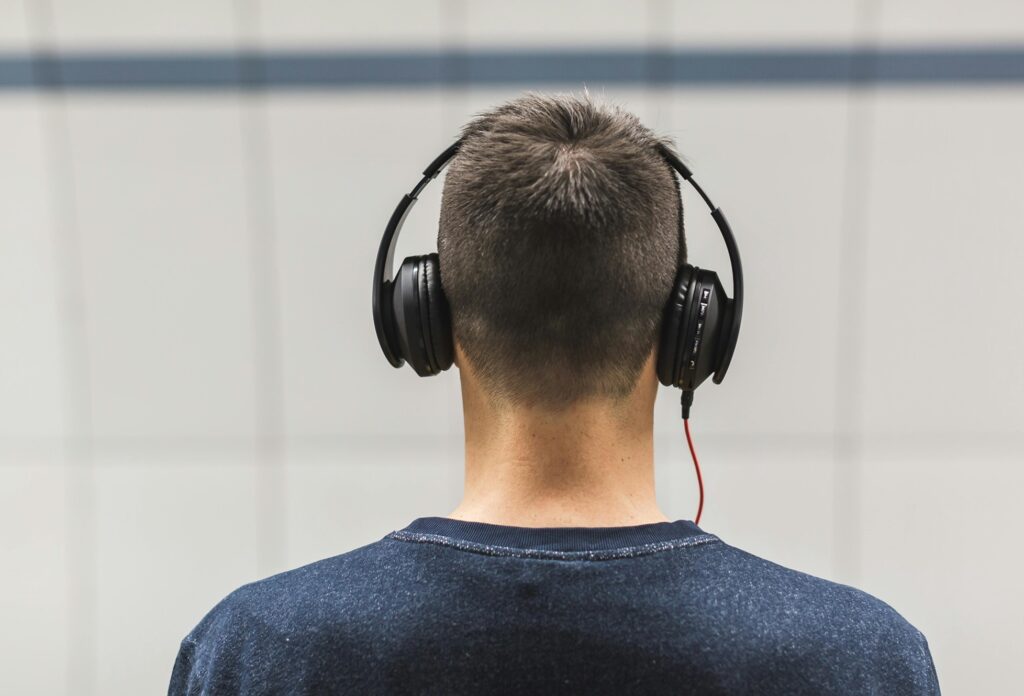Tagged Under:
The Performance Mind Game
Try these student-centered approaches to maximize the moment — before, during and after every performance.
On a warm and humid Friday night in Texas, 250 students come off the field following a halftime performance. The crowd cheered throughout the performance of these wonderful musicians, and high fives and hugs ensued. The props are rolled away, and the electronics unplugged as an army of parent volunteers spring into action to clear the field to allow the football game to resume.
What You Can Do Before the Performance
What You Can Do During the Performance
What You Can Do After the Performance
Now what? What is the right thing for me to say to them? What if they performed well? What if they didn’t? What should your students be thinking as they prepare for the performance, during the performance and then afterward (possibly the MOST important moment for student growth)?
These questions must be answered whether it’s at a football game, on the concert stage, an individual performance or a major competition. Why? Because students will make decisions about their performance on their own — and oftentimes, it’s NOT the decisions we want as music educators —we must take control of the situation and shape the message toward student growth and engagement.
THE YAMAHA EDUCATOR NEWSLETTER: Sign up to receive real-world advice, tips and instrument guides!
Before the Performance
We are all familiar with this scenario: During the anxious time before a performance, our minds just run wild as we can’t help but focus on all the “what-ifs” instead of the hours of training and dedicated practice that went into this moment. It’s completely natural, yet totally destructive!
With my students, we try to identify the things that happen in our minds before a show, isolate those negative thoughts and fill our minds with positive outcomes and focus on training. Having trust in the training that has been invested into the performance is KEY!
Do they trust it? What anxieties do they have? Have you asked them? It’s amazing what students will tell you, especially your older leaders. Candid responses about their fears and anxieties can help you craft a message that will empower your students to do their best going into a performance.
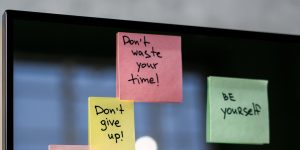 Try this: We have a challenge that we throw out to our groups leading into big show weeks. How long can you go saying, writing (social media/text) and thinking positive outcomes? The more you say, write and think something, the higher the probability that it will come true! Challenge your group and acknowledge that if/when you fall off the positive wagon, you will get right back on. It’s a tough assignment but reminders and encouragement from student leaders in the group will work wonders. And talk about a shift in the culture of the group from this simple exercise — just wait and watch!
Try this: We have a challenge that we throw out to our groups leading into big show weeks. How long can you go saying, writing (social media/text) and thinking positive outcomes? The more you say, write and think something, the higher the probability that it will come true! Challenge your group and acknowledge that if/when you fall off the positive wagon, you will get right back on. It’s a tough assignment but reminders and encouragement from student leaders in the group will work wonders. And talk about a shift in the culture of the group from this simple exercise — just wait and watch!
During the Performance
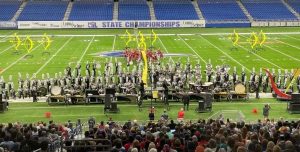 Take time to lay out for your students the physical and mental realities of performance. Physically, their bodies may exhibit some of the responses we have all experienced as performers: rapid heart rate, butterflies in their stomach, sweating, dry mouth, etc. These physical responses are natural, but they can be overcome or even used to your advantage when students are taught how to deal with them.
Take time to lay out for your students the physical and mental realities of performance. Physically, their bodies may exhibit some of the responses we have all experienced as performers: rapid heart rate, butterflies in their stomach, sweating, dry mouth, etc. These physical responses are natural, but they can be overcome or even used to your advantage when students are taught how to deal with them.
Now for the mental side of the performance. We have all heard the old saying “give it 110%.” I have said it myself many times before I realized that it is complete sabotage for a performer. How? Ideally, in performance, your students strive to execute their assignment exactly as they have been trained — nothing more, nothing less!
I try to overemphasize that on show day, we do NOT want something “special” because it already is special! We have trained, designed and rehearsed it to be special, exciting, musical and expressive. Trying to do more than you have trained to do in performance is a guaranteed way to lower the quality of your execution and overall performance quality! Instead, help your students realize that they have already done all the hard work in rehearsal, now it’s time to let it happen in performance. Trusting each other and the training they have invested will pay so many dividends in performance excellence!
After the Performance
 The post-performance aspect of the mental game may be the most important as it is directly in our control if we choose to accept the challenge! Check out my article, “The Power of Words: The Enduring Effects of Arrows and Songs,” which dives into the importance of choosing the right words to build each other up instead of tearing each other down.
The post-performance aspect of the mental game may be the most important as it is directly in our control if we choose to accept the challenge! Check out my article, “The Power of Words: The Enduring Effects of Arrows and Songs,” which dives into the importance of choosing the right words to build each other up instead of tearing each other down.
Now, we’re all familiar with this scenario: Your students just finished their performance — and no matter the type of performance or venue — they will begin to assess how they did. If you are not aware and cognizant of this fact, you are missing out on a huge opportunity.
When things go well, it’s generally easy. Everyone is feeling good about the performance and themselves. No problems, right? Almost. When things go well, lead your students back to what allowed them to be successful. Was it extra-focused rehearsals during the week? Was it their flexibility during trying circumstances? Find the behaviors that you want to encourage in the future and link those with the current good feelings students are having from performing well together.
What do you do when things do not go well? I used to fall into the trap of anger and guilt-tripping as my weapons of choice. At times, this negative reinforcement was relatively effective, but at what cost? Instead, shape your students’ mindsets and focus on:
- What went well (which is generally much more than initially will be acknowledged)?
- What did you learn?
- What are you going to do about it?
Following this line of questioning will help students realize the positives from within the performance and refocus them on the actionable steps to improve. It’s all part of the journey as they grow as performers, musicians and people!
Try this: After your post-performance talk, have your students rate their performance into one of two categories: “good” or “needs work.” Tell students in the “good” category to think about their performance and celebrate it. Ask the “needs work” group to stay behind and have a quick chat with you. Do not allow those kids to walk away thinking they have failed you or the group — this is detrimental to their growth and the group’s success. Instead, spend a few minutes counseling each of them, providing an actionable plan to address the aspects of their performance that they felt was subpar.
Prepare for the Moment
Do something crazy and ask your students this simple question: “What percentage of successful performance is mental?”
Ask yourself that question, too! I bet that you will get some high percentages as responses. With that in mind, how much of the performers’ time is spent focusing on building and refining their mental game? If you are anything like me, the answer is not a lot! I always counted on our rehearsal time being there when we really needed it, yet all too often, our performances lacked the cohesion and consistency we had been delivering consistently during rehearsal. What gives?
How many students have said, “I just played this perfectly in the practice room,” but they cannot consistently deliver under pressure. This must be one of the most common complaints and frustrations for music educators as well as their students. The answer lies in understanding the importance of proper and prescriptive mental preparation for the moment.
Here is the biggest piece of advice I could give any competitor in any activity: Focus on the process of performing, NOT the results.
We as teachers and performers have control over the process but very little control over the actual results (i.e. rank, placement, medals, trophies, etc.). That’s why you must design your rehearsals and practice sessions around incentivizing student behaviors that result in the desired performance outcomes — without referencing things that are out of our control.
If you talk about things that are out of your control, you take the power away from you, their teacher, and delegate it to someone else. You would be crazy to do this! You are the one who has your students’ educational development at the top of mind as they walk in the door each day — keep that great tool in your toolbox!
In the band hall, students hear me say, “The most important note is the NEXT NOTE!” In fact, I say it so often that my students will actually finish the sentence. This simple saying helps students remember that no matter what happens in performance, that moment has now become the past and all that can be controlled is the present or the next note!
One of my goals each year is to have my students care so much about the process of performing their assignment — so much so that they care about that individual achievement more than the actual results or the competition. It’s a huge challenge to get everyone on board with this because there is no leaderboard showing who is in first place in the “process of performing” championships, but the more students who buy into this mindset, the better educational environment you will have in your classroom and an amazing byproduct is consistently better performances!











